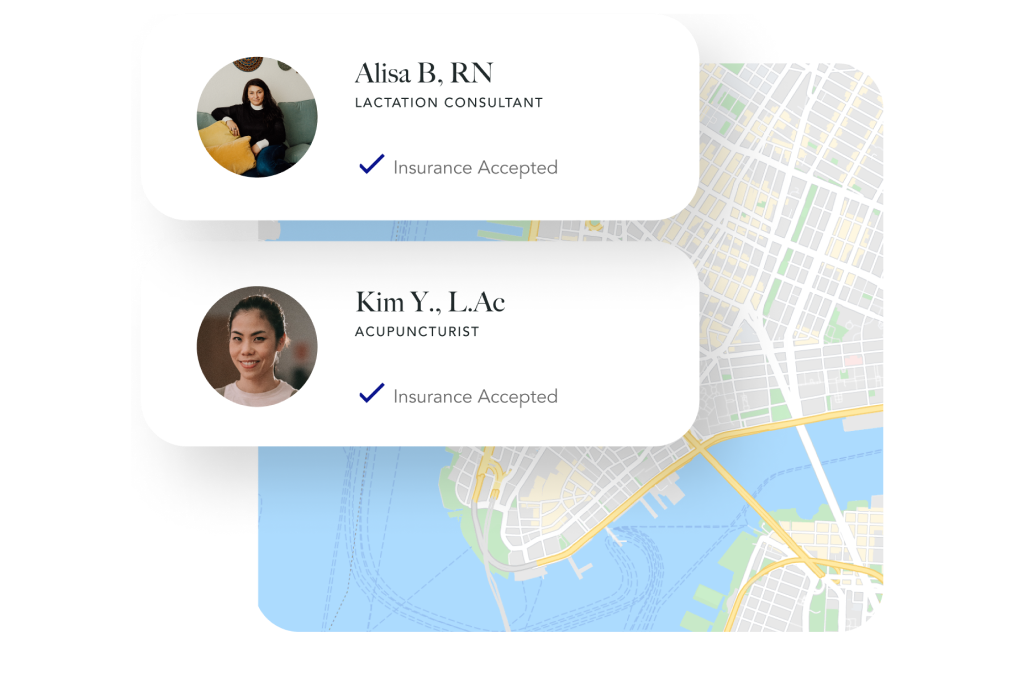
Our Specialties
Find Gastrointestinal Disorders & Gut Health Dietitians Near Me
90% of Zaya patients pay $0 for one-on-one nutrition counseling with a registered dietitian.
Find Gastrointestinal Disorders & Gut Health Dietitian Near MeBrowse our directory of gastrointestinal & gut health dietitians — and book your visit online using your insurance.

Find the right care for you.

Pay with your insurance.

Book your visit online.
Get a provider who gets you.
Our providers are nutrition experts and take the time to get to know you and your needs.
Real talk from real patients.
Have questions? We’ve got answers.
For more information about how Zaya works, check out our frequently asked questions.
View FAQsMore about gastrointestinal & gut health dietitians
What is gut health?
Gut health refers to the optimal functioning and balance of the gastrointestinal tract, including the stomach, intestines, and associated organs. The gut is crucial for digestion, nutrient absorption, regulation of the immune system, and overall well-being.
A healthy gut is characterized by a diverse community of beneficial bacteria, known as the gut microbiota, which help break down food, synthesize certain vitamins, and protect against harmful pathogens. Maintaining a healthy gut involves a combination of factors, including a balanced diet, regular physical activity, adequate hydration, sufficient fiber intake, and stress management.
Poor gut health has been associated with various digestive disorders, such as irritable bowel syndrome (IBS), inflammatory bowel disease (IBD), and gastrointestinal infections. An unhealthy gut may contribute to other health conditions beyond the digestive system, including obesity, metabolic syndrome, autoimmune diseases, mental health disorders, and certain cancers.
What are common gastrointestinal problems?
Gastrointestinal problems encompass a range of conditions that can affect the digestive system and cause discomfort or disruption to normal digestion. Here are some common gastrointestinal problems:
- Inflammatory Bowel Disease (IBD), including Crohn’s disease and ulcerative colitis (you can learn more about the ideal Crohn’s disease diet here and ulcerative colitis diet here)
- Irritable Bowel Syndrome (IBS)
- Celiac disease, an autoimmune disorder that affects genetically susceptible individuals, causing damage to the small intestine upon gluten ingestion.
- Gastroesophageal Reflux Disease (GERD)
- Constipation
- Diarrhea
- Bloating and gas
What causes gastrointestinal and gut health issues?
Various factors, including dietary choices, lifestyle habits, changes in routine, stress, medication usage, and specific physiological conditions such as pregnancy, can cause gastrointestinal and gut health issues.
Common causes of gastrointestinal and gut health issues include:
- Eating a diet low in fiber, which can contribute to constipation and other digestive problems
- Lack of physical exercise, which can affect digestion and bowel regularity
- Traveling or changes in routine, which may disrupt the normal functioning of the digestive system
- Consuming large amounts of dairy products, which can lead to digestive discomfort and lactose intolerance symptoms
- Stress, which can impact gut function and exacerbate digestive issues
- Resisting the urge to have a bowel movement, often due to hemorrhoids or other factors, which can lead to constipation
- Overusing anti-diarrheal medications, which can weaken bowel muscle movements over time
- Taking antacid medicines that contain calcium or aluminum, which can affect digestive processes
- Certain medications, particularly antidepressants, iron pills, and strong pain medications, may have gastrointestinal side effects
- Pregnancy, which can cause hormonal and physical changes that affect digestive function
What are the symptoms of gastrointestinal issues?
Symptoms of gastrointestinal issues can vary depending on the specific condition, as digestive diseases encompass a range of health problems occurring in the digestive tract.
Common symptoms of gastrointestinal issues include:
- Bleeding
- Bloating
- Constipation
- Diarrhea
- Heartburn
- Incontinence
- Nausea and vomiting
- Abdominal pain
- Swallowing difficulties
- Unexplained weight changes
What are the risks of gut health issues?
Gut health issues can pose various risks to overall well-being. The gut plays a crucial role in digestion, nutrient absorption, and immune system regulation, so when gut health is compromised, it can have a cascading effect on the entire body.
Imbalances in the gut microbiota and digestive disorders have been associated with a range of health concerns, including:
- Inflammation
- Weakened immune function
- Increased susceptibility to infections
- Nutrient deficiencies
- Hormonal imbalances
- Mood disorders
- Chronic conditions like obesity, diabetes, and cardiovascular disease
Additionally, poor gut health can contribute to gastrointestinal discomfort, disrupted bowel movements, and reduced quality of life. Prioritizing gut health and addressing any issues promptly can help mitigate these risks and promote overall wellness.
When to see a gut health & gastrointestinal dietitian
Working with gut health and gastrointestinal dietitians can be beneficial in various situations, indicating the need for their expertise and support. Consider seeking assistance from a gut health and gastrointestinal nutritionist if you:
- Have been diagnosed with a digestive disorder. A nutritionist specializing in gut health can help develop a tailored meal plan that addresses specific dietary requirements, manages symptoms, and optimizes nutrient intake for conditions such as irritable bowel syndrome (IBS), inflammatory bowel disease (IBD), or celiac disease.
- Experience digestive symptoms or discomfort. If you regularly experience bloating, abdominal pain, diarrhea, constipation, or other digestive symptoms, a nutritionist can help identify potential triggers, recommend dietary modifications, and guide you toward a more comfortable and balanced digestive system.
- Seek guidance for dietary management. Whether you require guidance in navigating food intolerances, adopting a specialized diet like a low FODMAP diet, or addressing specific dietary concerns related to your gut health, a nutritionist can provide personalized advice and support.
- Want to optimize gut health and overall well-being. Even if you don’t have a diagnosed condition, gut health and gastrointestinal nutritionist can help you improve your digestive health, optimize nutrient absorption, and enhance overall well-being through personalized dietary strategies and lifestyle recommendations.
- Need assistance with meal planning and nutritional adequacy. If you are unsure about meeting your nutritional needs while following a specific dietary approach or have concerns about nutrient deficiencies related to gut health issues, a nutritionist can assess your current diet, provide guidance on balanced meal planning, and ensure you are receiving adequate nutrients.
How Zaya Care’s gut health & gastrointestinal dietitians can help
Zaya Care’s nutritionists specializing in gut and gastrointestinal health offer evidence-based advice and personalized guidance tailored to individuals with specific dietary needs and goals related to their digestive well-being.
They provide education on proper nutrition, selection, and preparation of foods that support gut health, managing portion sizes, and overall well-being. Gut health nutritionists also assist in navigating food labels, identifying suitable sources of nutrients, optimizing meal timing, and addressing concerns or questions that arise in the journey toward better gut health.
When working with a nutritionist for gut and gastrointestinal issues, the initial appointment typically involves a comprehensive assessment to gather information about your current eating habits, lifestyle, medical history, and specific goals related to digestive health. The nutritionist will listen to your concerns, understand your unique needs, and create a personalized plan based on this information.
During the first appointment, the nutritionist will discuss your dietary preferences, medical conditions, allergies, and goals specific to gut health. They may assess your current nutrient intake and identify areas for improvement. You and the nutritionist will collaboratively develop a well-balanced meal plan that meets your nutritional needs and aligns with your personal preferences and lifestyle.
Follow-up appointments with the nutritionist are essential for monitoring progress, addressing challenges, and making necessary adjustments to your plan. These appointments may involve reviewing your food diary, receiving feedback and guidance, incorporating new foods or recipes, and receiving education on specific nutrients crucial to gut and gastrointestinal health.
Benefits of working with a Zaya Care gut health & gastrointestinal nutritionist
Working with a Zaya Care gut health and gastrointestinal nutritionist offers numerous benefits for individuals seeking guidance and support in improving their digestive well-being. A nutritionist can help develop a personalized meal plan that addresses your specific needs and ensures a well-balanced diet. They provide guidance on portion sizes, food combinations, and meal timing to optimize your overall nutrition.
A Zaya Care gut health and gastrointestinal nutritionist can also assist in ensuring adequate nutrient intake. They can help identify common nutrients that may be challenging to obtain, such as fiber, probiotics, and specific vitamins and minerals. By providing education and practical tips, they can help you address potential deficiencies and support your digestive health.
Furthermore, a Zaya Care nutritionist can guide navigating dining out and social situations while managing gut health. They can help you find suitable food options, make informed choices, and overcome challenges related to your specific dietary needs. With their expertise, a nutritionist can empower you to make confident decisions that promote optimal digestive well-being.




